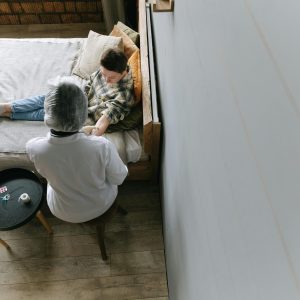Asylum seekers in England at risk of missing out on basic healthcare, warns Red Cross
LONDON (AA) – The British Red Cross has highlighted the limited access to basic healthcare services for asylum seekers in England due to a lack of digital services.
A report by the Red Cross indicated asylum seekers avoid seeking medical assistance altogether because of the absence of internet connectivity.
The digitalization of healthcare services was hastened due to the COVID-19 pandemic. Consequently, booking an appointment with a GP often involves online registration and virtual consultations via video calls. While this approach may simplify the process for some individuals, it can also create hindrances for others.
The Red Cross report identified three primary barriers for asylum seekers seeking healthcare – the cost of mobile devices and data, a shortage of Wi-Fi in asylum accommodations, and a lack of confidence in using technology and navigating websites in English.
The British Red Cross also suggested that the Home Office should make it mandatory for asylum accommodations to provide “fast and free” internet access and involve current or previous asylum seekers in discussions to ensure that their fundamental healthcare requirements are met.
Olivia Field, head of health and resilience policy at the British Red Cross, said: “We are concerned about the impact on people seeking asylum, who often don’t have digital access.
“Access to the internet, smartphones, or computers is not a luxury. Without them, people’s health is put at risk and it’s harder to integrate into communities, with an increased risk of isolation,” she added.
Sohaib Hafeez, a peer researcher who worked on the report, commented on the stories he heard from the people he interviewed: “Simple things, like access to a GP, became a struggle as they often could not afford technology and internet access, and did not have the digital skills needed to navigate these tools.”
Reflecting on living without internet during the lockdown, one person seeking asylum from Eritrea interviewed by the British Red Cross said: “I hated it; I felt so isolated. I had no internet, it felt like I was in prison. My mental health was impacted. I suffered a lot. I don’t want to think about that time again.”
The British Red Cross has cautioned that it may be particularly challenging for asylum seekers to obtain the necessary medical appointments as they frequently lack smartphones or do not have sufficient funds to pay for data.












